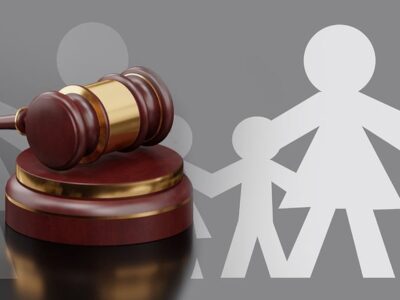
Child support laws might sound a tad bit complicated at a glance, but they aren’t. However, the laws might become stringent when you might face legal consequences for non-payment. This blog is going to answer one of the most vital questions one comes up with: Can you go to jail for not paying child support?
Child support is a delicate issue that ensures that your child gets the proper financial support they deserve. As a parent, you are obligated to pay for child support, irrespective of your marital status. But failing to meet these financial goals can result in harsh legal repercussions. You might even go to jail for this. Hence, it’s pivotal that you keep in mind the legal implications that might come if you do not pay for proper child support.
In this blog, we will delve into the intricacies of child support laws and how later it might lead to incarceration in case of non-payment. This blog will dive into the specifics of examining different enforcement techniques and help you avoid any form of complexities.
Whether you’re a parent struggling with child support, or just merely want to understand your rights and obligations, keep reading to know about the intricacies of paying child support.
Understanding Child Support Obligations

Child support obligations come with different checkboxes which should be ticked before incarceration. They are:
Legal Basis
In this case, child support laws come under the state laws that generally prioritize the best interests of your child. The court even follows guidelines to establish a fixed amount based on your capacity on child support rate, depending upon your income, needs and custody arrangements.
Fiscal Responsibilities
In this case, even if you’re divorced, you must provide financial assistance to your child. This financial assistance covers housing, food, clothes, education and medical care.
Court Orders
These formalize the overall child support responsibilities and specify the payment amount. These decrees are legally binding and as a parent, you’re bound to follow them.
Enforcement
In this case, child support orders are changed if there is a major change in income or custody arrangements. For example, in cases of tax refund, interception and driver’s license suspension, you will be provided with support to ensure proper compliance.
Non-Custodial Parent Responsibilities
Imagine you’re taking care of a child who is biologically not yours. But you’re paying for thre child’s basic needs. This makes you a non-custodial parent or guardian. Therefore, as a non-custodial parent you’re legally bound to take care of your child.
Child Support Laws in the US

Some statutes govern child support only child support laws in the United States. Although there might be certain federal laws and guidelines you might have to adhere by, but overall, it ensures the well-being of the child. Let’s see what they are:
Establishing Child Support Obligations
These obligations are primarily established by the court based on the guidelines determined by the state. These include taking into account the parent’s income, the number of children and the cost of living in the respective geographical area. Courts deviate from these guidelines based on specific circumstances.
Enforcing Child Support Orders
Enforcement mechanisms often vary from state to state depending upon wage garnishment and intercepting tax orders. Failing to comply with these orders results in severe consequences like jail time or other legal penalties.
Modifying Child Support Orders
In this case, the court can modify your child support orders if there are any necessary changes in change in income or custody arrangements. Either you or your spouse can file a petition in court and map out the relevant factors.
Interstate Child Support Enforcement
The UIFSA enforces child support across the state lines. It ensures that you meet with the proper obligations of child support even if you are staying in a different state.
Enforcement Mechanisms of Child Support Laws in the US

Child support enforcement in the US is pivotal as it ensures the parents meet their financial goals and obligations. The court ensures that child support orders are complied with properly and if someone is non-compliant, they should be held accountable.
Wage Garnishment
Let’s talk about the most common method of enforcement that is wage garnishment. Over here, child support payments are deducted directly from the paychecks of the non-custodial parents’ paycheck by their employees.
Income Withholding Orders (IWO)
These are court orders requiring employers from withholding child support payments from a non-custodial parent’s income. They also help in remitting the appropriate state agency or directly indulge with the custodial parent.
Interception of Tax Refunds
State child support agencies can seize your tax refunds and collect past-due child support systems. This is also often done through the Federal Tax Refund Offset Program or other similar state programs.
Suspending Licenses
Sometimes the court can take drastic measures by suspending your professional driver’s license or other different recreational licenses if you fail to pay child support.
Liens and Seizures
Child support agencies place liens on property assets like real estate or bank accounts in order to collect past due child support without any buffer.
Denying Passport
This allows the federal government to deny any kind of passport application or renewal request from parents who are owing more than $2,500 in child support.
Contempt of Court
In this case, if you willfully disobey the court orders about paying child support, you would be held in contempt that results in fines, probation and even imprisonment.
Factors Influencing Jail Time for Non-Payment

Even if it’s sometimes not desirable, sometimes you miss out on paying child support. But what does lead to getting jail time for non-payment. Here are some key factors:
Severity of Non-Payment
The court grants jail time depending upon the amount owed, delinquency duration and also if the parent has a history of non-compliance. If as a parent you’ve done this several times before, then this increases the chances of your incarceration.
Ability to Pay
Suppose as a non-custodial parent, you’re paying the child support. You’re paying it because the biological parent cannot pay due to unemployment or disability. In this case, the child support plan will be modified or have a feasible payment plan for the future.
Willful Non-Compliance
Courts can understand the difference between the parents who have a genuine problem paying child support or someone who is not willfully paying for it. In cases of neglecting the child for seeking employment or concealing the income, they are more likely to get harsher penalties that might include jail time.
History of Non-Compliance
Suppose you are consistently paying for child support. But one time you missed it due to a problem. The court would therefore heed to your problem and be lenient with you. Taking into account its offending counterparts, if you have a history of evading payments, you might even face a stricter consequence. This can even result in jail time.
Giving Efforts to Rectify Non-Payments
Sometimes the non-custodian parent fails to comply with the payment plan. In that case, the court offers you leniency if your reason for not paying on time is reasonable. Sometimes if you delay due to getting in contact with some agency to establish a payment plan, that is also allowed if you can later on regularize the payment system.
Child’s Best Interest
The primary concern of the court is to serve the child’s best interests. Sometimes incarceration is viewed as a last resort by the court to comply with child support obligations. If your other options like establishing a payment plan or unemployment have failed, then the court has no other alternative but to order incarceration.
Alternatives to Incarceration: Payment Plans and Modifications
In cases where non-custodial parents are unable to meet their child support obligations, courts may explore alternatives to incarceration to ensure compliance while addressing the parent’s financial circumstances and the best interests of the child.
Payment Plans
Courts may establish a structured payment plan that is tailored according to the financial situation of the non-custodial parent. These plans schedule regular payments to child support depending upon the income of the parent. These payment plans come up with a manageable way for parents to fulfill their obligations and stay away from the immediate threats of incarceration.
Modifying Child Support Orders
Sometimes, as a non-custodian parent or even as a custodian parent, you might face certain changes in your lifestyle. It might be unemployment, illness or even custody arrangements. In this case, the court might modify the child support order according to your request. The modification would adjust according to the amount of child support that might reflect the parent’s current financial situations that would ensure the payment plans to be feasible. The courts can also assist the non-custodial parent to comply with the child support orders without even boiling down to any punitive measures.
Mediation and Negotiation
This happens when mediators or your family law attorney comes into the play. They help you reach a mutually acceptable agreement plan that would suffice with your child support payments. The prolonged session with these attorneys helps you out with making a collaborative forum discussing financial concerns and exploring other payment options. This helps in resolving disputes even outside the court.
Employment Assistance Programs
In this case, the courts refer the non-custodian parents to comply with the employment assistance programs to have secure employment that would generate the overall income. As a parent, you can address the problems of not being able to pay child support and become empowered enough to meet up with their child support obligations.
Legal Rights for Parents Facing Non-Payment Allegations

Even if you face an allegation of not providing child support, you can even represent yourself in court and fight against the injustice that has been pointed out towards you. Here are some legal rights you have if you’re facing any kind of wrongful accusations.
Due Process
As a non-custodial parent, you’re entitled to due process which includes noticing all allegations against them and presenting the opportunity of evidence in their defense.
Legal Representation
You will have the legal right to represent yourself in court during the proceedings of child support. You can hire attorneys who are going to protect your rights on your behalf and represent you in court.
Modifying Petitions
Parents can file a petition in court to modify their child support orders if there are significant changes in income or health.
Appeal Rights
In this case, the parents appeal to different court decisions based on child support enforcement. They believe that their rights have been violated or there have been significant errors made during the proceedings.
Final Thoughts
Navigating through the complexities of child support comes with maintaining a balance between both parents and children’s rights. As you navigate through the complex waters of the American legal system, you can gradually grasp the issues that come with child support.
When you know and understand the complex legal framework and available alternatives, it is pivotal for you when you face non-payment violations before seeking out full financial obligations.
However, there are different policy debates that happen around child support enforceability. It underscores the need for getting equitable solutions to address economic and parental rights alongside the changing gender dynamics.
Hence child support strives to promote a fair and effective enforcement policy where the policymakers can ensure that the child will receive proper financial support. But it should be noted that the well-being of the family should not be hampered in this particular procedure.
Ultimately, the goal of child support enforcement is to create a system that encourages parental responsibility, fosters economic stability, and prioritizes the welfare of children. By navigating these challenges with empathy, understanding, and a commitment to fairness, we can create a brighter future for families across the United States.
Read Also:


